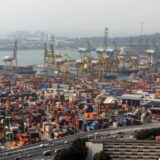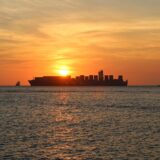
New marine fuel standard boosts maritime industry’s green efforts
The marine industry has achieved a significant milestone in its sustainability efforts with the publication of the new NEN 7427-1 standard, aimed at regulating the use of FAME (fatty acid methyl esters) as a blend component in residual marine fuels. This development is expected to pave the way for increased adoption of biofuels within the maritime sector, aligning with international emission reduction targets.
As the marine industry grapples with the challenge of reducing emissions, biofuels have emerged as a viable solution. While FAME has been used in road transport for years under specifications such as EN 14214 and ASTM D6751, its application in marine fuels lacked a dedicated standard. NEN 7427-1 addresses this gap by providing specific guidelines for the marine industry, thus supporting the integration of biogenous products in marine fuels.
Given the global nature of the marine industry, NEN 7427-1 is poised to complement the existing ISO 8217 standard for marine fuels. The ISO 8217 standard is the international benchmark for marine fuel specifications. It defines the quality and technical requirements for marine fuels used in ships and other marine vessels. The latest update to the ISO 8217 standard for marine fuels was published on May 30, 2024. This new version, ISO 8217:2024, introduced several significant changes, including:
- Introduction of Biofuels: Allows up to 100% FAME content in specific grades.
- New Tables: Distillate and bio-distillate fuels, residual fuels with sulfur content ≤ 0.5%, bio-residual fuels, residual fuels with sulfur content > 0.5%.
- Expanded Testing Methods: Includes new tests for biofuel blends, stability parameters, and minimum viscosity limits.
NEN 7427-1 will not only enable the blending of FAME in accordance with road transport standards but also introduce M-FAME (marine-specific FAME) into the marine fuel mix. Plans are underway to integrate NEN 7427-1 within ISO and CEN frameworks, thereby enhancing its global applicability.
Development process
The standard’s draft was made available for public consultation in February, allowing stakeholders and experts to provide feedback. These contributions have been incorporated into the final version, now accessible through the NEN standards shop or NEN Connect.
The ‘alternatieve brandstoffen zeescheepvaart’ working group, comprising Dutch and Belgian representatives from petroleum and biodiesel production, shipping companies, and other stakeholders, spearheaded the development of NEN 7427-1. The group is also working on NEN 7427-2, a standard for FAME distillation residues, expected to enter public consultation later this year or early next year.
For more details, visit the NEN website.













